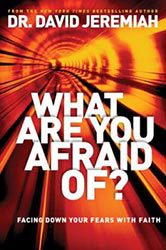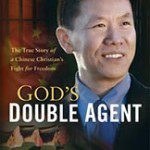 This morning I attached next week’s sermon and sent it off to my church study for printing later in the day. As I went back to look at my e-mail queue, I discovered that I had written “final sermon” as the subject of the note. My notation gave me pause. I recently told my new congregation that they might expect 438 more sermons from me in order to complete my vision of a ten year pastorate, with 45 sermons each year. While my congregants have viewed this a sign of my commitment to their congregation, not to mention my curious sense of humor, they aren’t sure if I’m rejoicing or counting the days. (To be truthful, I am rejoicing, since I love the practice of preaching and sermon study.) Still, there was a certain warning hidden in the subject heading and my jest about how long I hope to preach. Both contain a type of deadline. Someday, there will be a “final sermon,” someday a last book to read and write, someday 450 sermons will reached and then what will I do?
This morning I attached next week’s sermon and sent it off to my church study for printing later in the day. As I went back to look at my e-mail queue, I discovered that I had written “final sermon” as the subject of the note. My notation gave me pause. I recently told my new congregation that they might expect 438 more sermons from me in order to complete my vision of a ten year pastorate, with 45 sermons each year. While my congregants have viewed this a sign of my commitment to their congregation, not to mention my curious sense of humor, they aren’t sure if I’m rejoicing or counting the days. (To be truthful, I am rejoicing, since I love the practice of preaching and sermon study.) Still, there was a certain warning hidden in the subject heading and my jest about how long I hope to preach. Both contain a type of deadline. Someday, there will be a “final sermon,” someday a last book to read and write, someday 450 sermons will reached and then what will I do?
I must admit that I have never been seriously ill, but I do appreciate David Jeremiah’s reflections on facing illness and aging with faith in his new book, What Are You Afraid Of? My son is a cancer survivor and my best friend is living daily with a cancer described as incurable. I have never broken a bone or been sick more than four or five days in succession. I’m a healthy sixty, living only with medically-controlled hypertension, and no chronic pain or limitation. But, I know that can’t last forever. At times, I wonder how I will respond if I am diagnosed with a debilitating cancer, experience constant and chronic pain, or have limitations in mobility and creativity.
Aside from my family life, my two favorite practices involve movement and thinking. Each morning I walk a few miles on the Cape Cod seashore near my home; I try to walk another mile or two in the afternoon or evening. A day without walking is a day without living for me. Yet, I know that what I take for granted is a challenge to my 95 year old mother-in-law. Will there come I time when I will be hobbled by age or disease? Will I simply give up or struggle on?
In the spirit of the philosopher Alfred North Whitehead, I am an “adventurer in ideas.” Not abstract ideas as much as ideas emerging in the interplay of theology, spiritual practice, ethics, and daily life. My ideas emerge from and shape my concrete living and the lives of others. Each weekday, I try to write at least 1,000 words. Study, reflection, and writing is as much a part of my life as my 35 year marriage to my wife Kate or my parenting and grandparenting. Yet, I know how tenuous a well-functioning mind can be. I visit elders with Alzheimer’s and dementia on a regular basis; I see clarity and creativity diminishing with age among some elders; and have witnessed a stroke’s impact on mental functioning.
I must admit I ponder my own death and diminishment every day. I wonder if I will be up to the task of living gracefully and creatively if I am diagnosed with cancer or experience the normal diminishments of healthy aging, not to mention a diagnosis of Alzheimer’s. I realize that my modest encounters with colds and flus are a dress rehearsal for something far more serious. I know that, apart from a mortal accident or sudden death due to heart attack or stroke, I will be most likely living my dying, observing parts of my life diminishing over time. I wonder if I will have the courage to trust God, believing, with the Apostle Paul, that as my body diminishes, I can continue to soar spiritually. I pass this wisdom on to the elder adults of my congregation; I pray that I will be able to embody this wisdom when my time comes.
Growing older is a moral and spiritual issue. I don’t have a prescription but I have a hope, grounded in my belief in freedom, creativity, relationship, and growth, and my affirmation that nothing can separate us from God’s love-in-action. Each day has limits and living creatively with the limits of concrete life is the best preparation for decisive, life-threatening and life-altering limit situations.
Every day we practice for our aging, infirmity, and dying. We don’t magically change with the diagnosis of life-threatening illness; but a life lived with the intention to add beauty to the world, to live with care, and to consider others’ feelings awakens these same attitudes when we face life’s limitations. We can be large spirited in the here and now, and in every future contingency. I am discovering a few spiritual practices that enable me today and, hopefully as my body-mind-spirit continue to age, tomorrow to face the realities of aging and diminishment with grace:
- Cultivating Equanimity – This comes from realistically recognizing your limits as well as the possibilities in every situation. This is the wisdom of the Serenity Prayer, recognizing what we are unable to do, but equally recognizing the moral call of every situation.
- Patience – Recognizing that life is unfolding at its own pace, often dictated by forces outside our control, and that we can’t push the river but must at times go with the flow of life, letting events be an opportunity to pause and notice, before acting.
- Cultivating creativity and freedom – Psychiatrist Viktor Frankl counseled that everything can be taken away from someone except her or his ability to respond to the circumstances of life. This is our ultimate freedom: our inherent creativity. We can practice creativity, making decisions that enhance your freedom on a daily basis.
- Meditation – Meditation encourages calm and centeredness. Regardless of our physical condition, we can find a quiet center that eases pain, expands our mind, and gives us perspective.
- Prayer – In Madeleine L’Engle’s A Ring of Endless Light, Vicky Austin’s grandfather, debilitated by incurable cancer, testifies that his calling now is simply to pray. Cultivating a life of prayer expands your horizons, deepens your spirit, gives perspective, connects with the universe, and may very well shape the future for us and others. To paraphrase Walter Wink, the future belongs to those who pray.
- Gratitude – Remember your blessings. We are not alone in the world but part of a lively, creative reality. Gratitude adds perspective and places our troubles in the context of a life that includes beauty, love, and relationships.
- Aim to be your highest self in every circumstance. Suffering need not render us apathetic, self-centered, or amoral. While illness tends to constrict our experiences of reality, we don’t have to be imprisoned by illness and diminish. We can commit ourselves to be worthy of our sufferings by reaching out to others and remembering the needs of others regardless of our life situation.
Aging and some forms of diminishment are inevitable for most of us. But, as Alan Jones says, spirituality deals with life’s “unfixables.” These realities are, accordingly, both the inspiration as well as the context of our spiritual adventures.
To read more Patheos bloggers on facing our fears with faith, visit the Patheos Book Club on What Are You Afraid Of? here.













